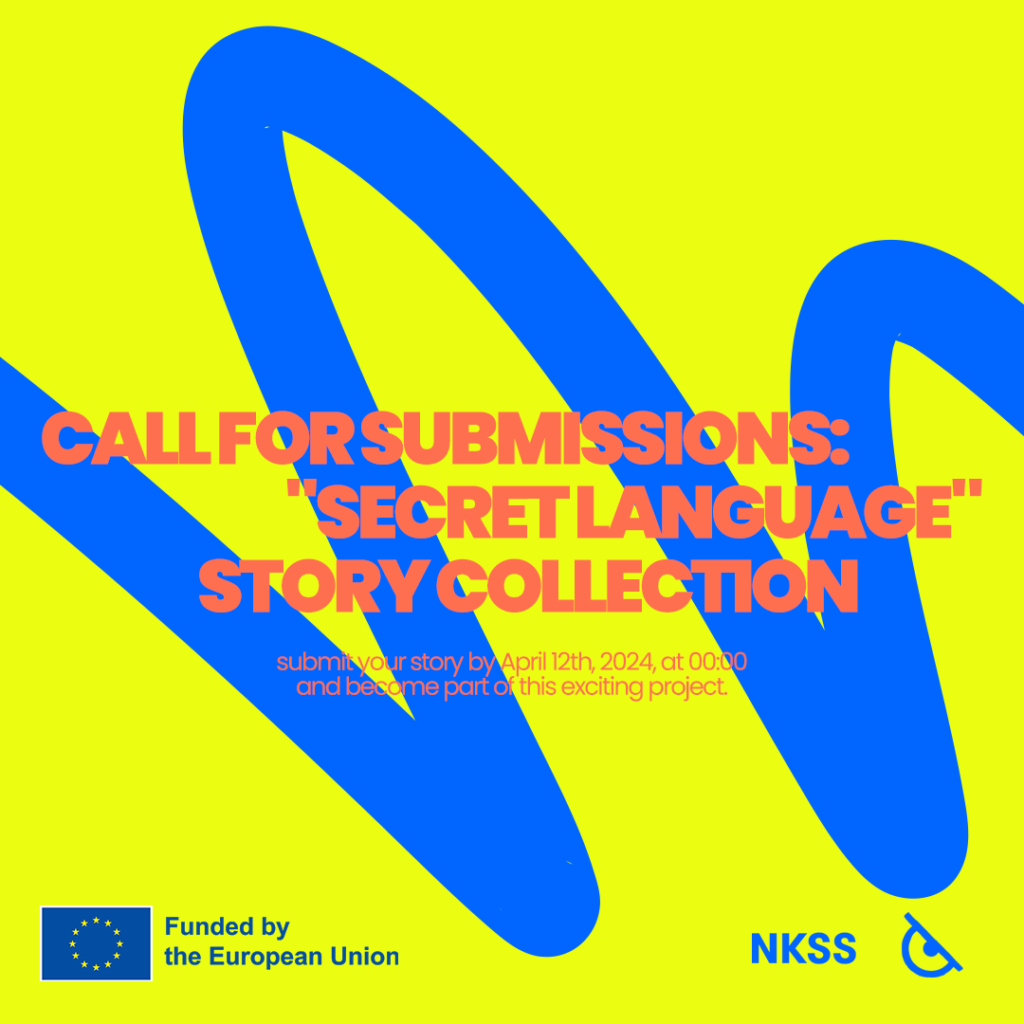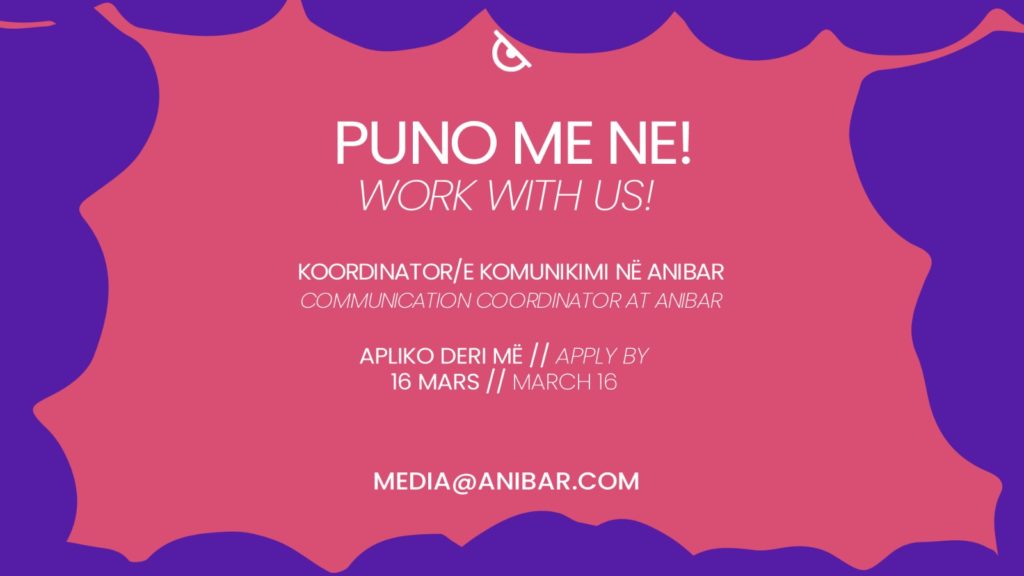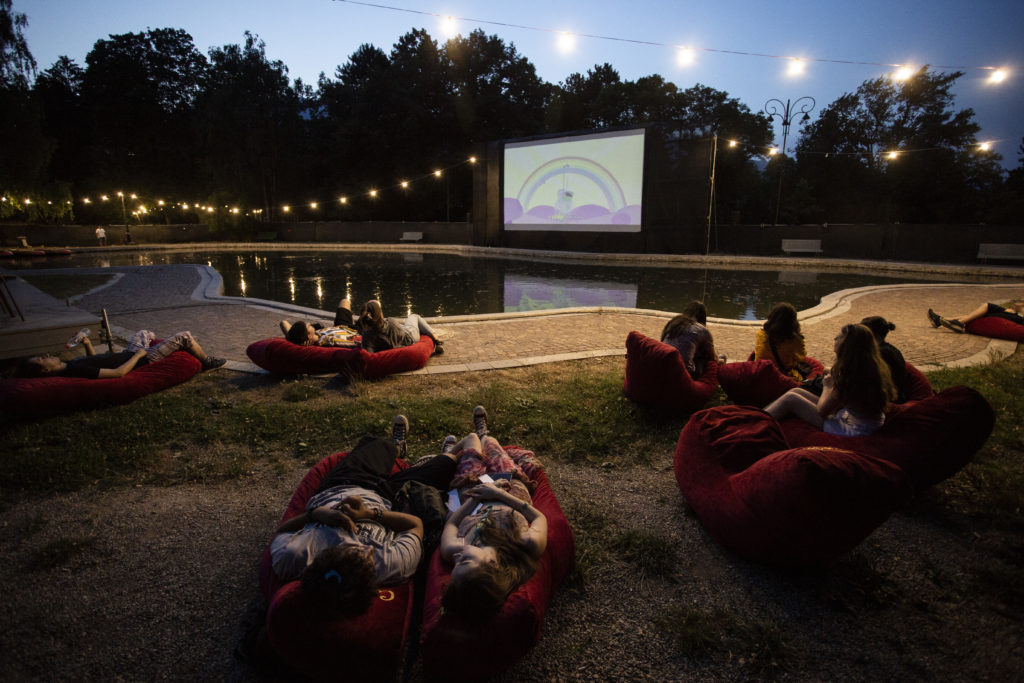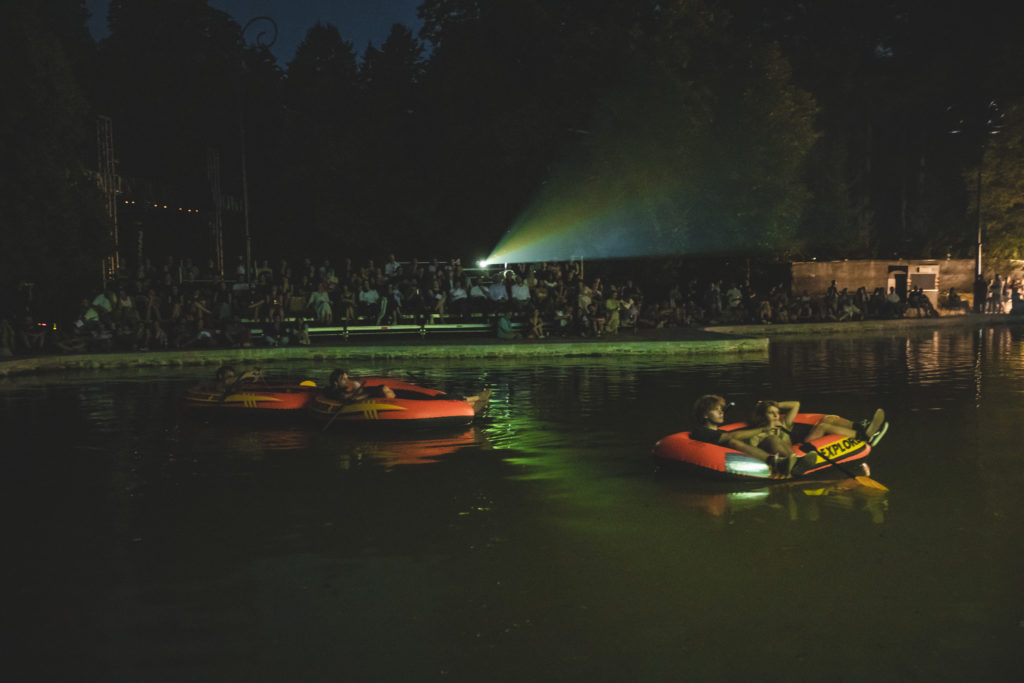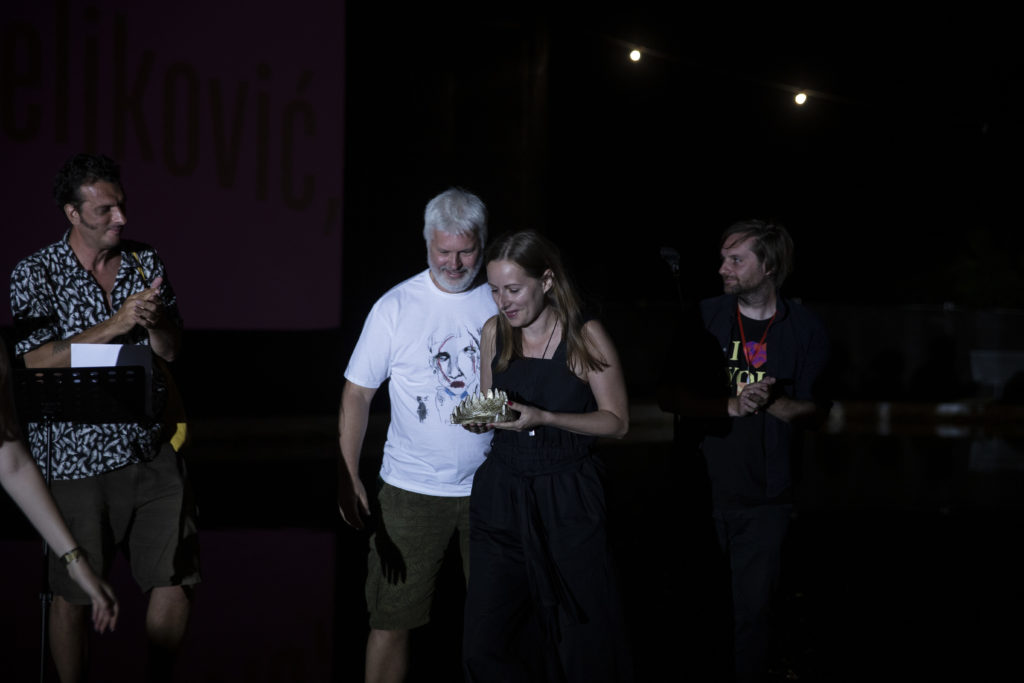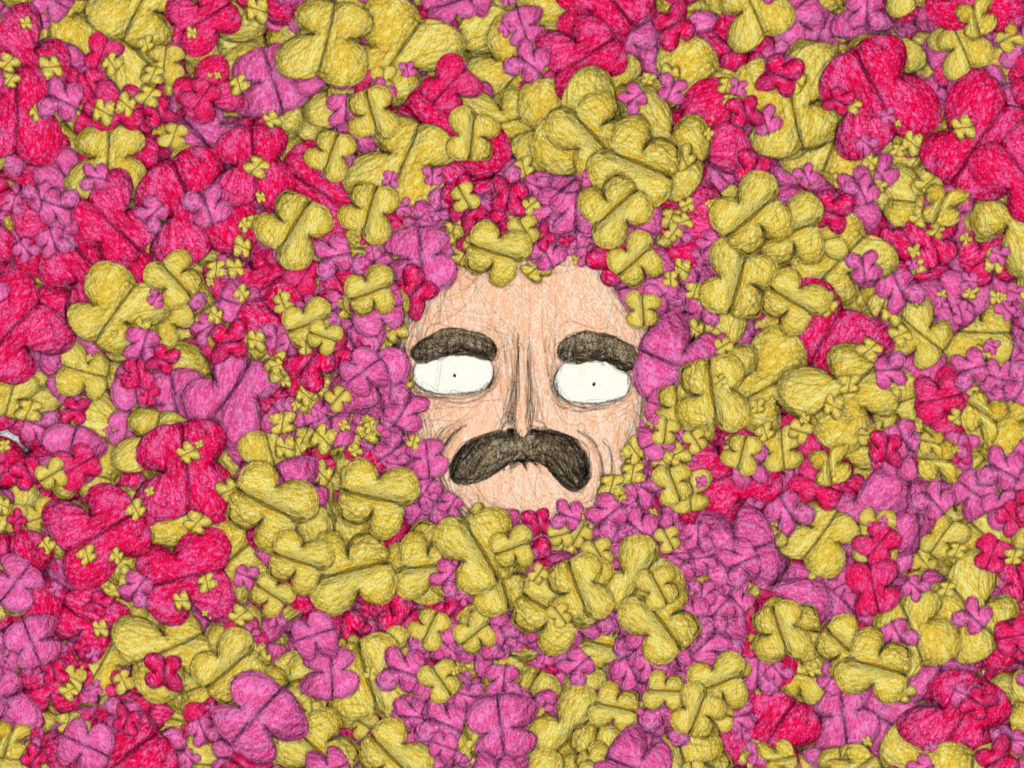Anna Eijsbouts: Art is like a megaphone, it reaches many people in a strong and subjective way
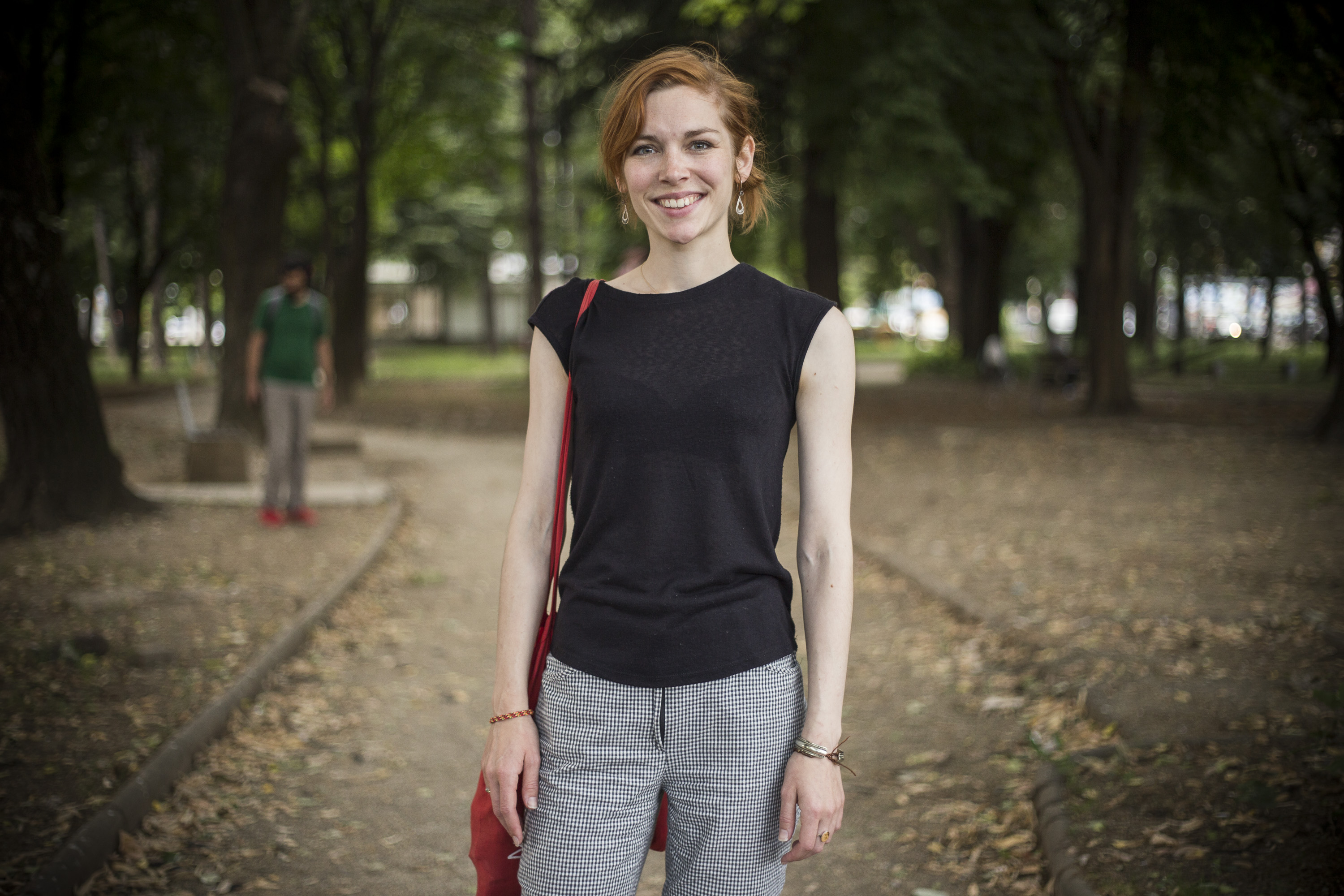
Anna Eijsbouts is a Dutch award-winning animation director and animator specialising in puppet and cut-out stop-motion animation. Her latest films include Hate for Sale (2017) and Voting in the EU (2019). She is also a lecturer at the Utrecht School of the Arts in Animation and Illustration. Anna graduated with an MA in Animation from the Royal College of Art in 2012 after completing a BA in Animation at the Utrecht School of the Arts in 2010. Anibar Press interviewed her to understand more on her views about activism through art.
Besarta Breznica
Anibar Press: Why do you think activism through films is important?
Anna: I think that artist have a voice that is almost it’s like going through megaphone so, we can reach so many people in a way that can be very strong and subjective. I’m also explain opinions on a very different way you can do with words and I think animation is the best possible example of that.
Anibar Press: Can you tell us the importance of art as a way to raise the voice of your personal political bubble?
Anna: I think, so how I use animation full in my own bubble. “Hate for sale” is a very good example of that, I don’t know if u have seen it. It’s a short film made a couple years ago which is more about how the hate kind of goes one and travelers the world and it was very subjective from a very lettering kind of happy bubble we are better without it and if we listen an empathy and sort of but an affection narrative kind of way. I think my latest film “voting in the EU” try to kind of break up the bubble and give people what very especially something that would help in the system but is really tricky getting out of your bubble. I think doing things in your bubble and making people feel very comfortable as already we share the same opinion that you sort of megaphoning is nice I mean it is important and its support with community. What is more difficult but also very important is to break up especially out of your bubble trying to get people to see different opinions.
Anibar Press:To realize the movie “voting in the EU” you received money from citizens rather than the European Union. Why?
Anna: So it was crowd founded and that was mostly to do with the fact that we didn’t want to put off anyone who was already pretty skeptical of the EU by making a film that would be founded by EU so that would be one way to sort of undermine that argument of like this is European propaganda because it would be exactly not that. It’s a film for the citizens that was founded by the citizens and it’s less subjective than something the EU would have put out that might have been like if you look at the EU the film that they put out just before the European Parliaments elections there was actually zero facts in that it was just a film with babies and vote for our future and it’s very much pulling on our heart strings but it is again not explaining what we’re voting for and why it’s important to vote on any level that has to do with facts it is just emotional, politically correct crap quite frankly and I think that is what people who are especially skeptical with the EU are kind of tired of and people who are already in that bubble they’ll be like yeah we’re voting for the… yeah it makes sense it’s reinforcing that bubble but it’s not helping anyone communicate better and that I think is one of the things that the EU really needs to do. So that is something that we really wanted to focus on with the film and crowd founding seemed to be the very possible way to accomplish that. What also really helped is that that meant that we had a support system in place for when the film was released and people who were interested in the film, who would push it further and so far that has been really helpful and this also means that it’s going to go into schools and it’s going to be used in educational ways and we are going to continue with it in that way.
Anibar Press: Why animation?
Anna: Because animation is such a beautiful way of explaining complex systems in simple ways. So if voting in the EU, the whole thing was kind of built up from this graphic idea of a vote being a square, a box basically that you can tick which is one of the first lines of the film and then everything comes from that little square which then becomes a cube and explains the trias politica and it allows illustration of such very very complex things and also to me it allows these very complex subjects to remain playful in a way that just a voice over or just a piece of text would not.
Anibar Press: What did you want to present through the two movies you worked on? Voting in the EU and Hate for Sale
Anna: I think what I wanted to present, so my motivations changed I think the first one I was just in a panic, I hadn’t made a film in a while and there was so much stuff going on in the world and I was like I want to make a film but I want it to be this and this and this and this and I want it to be so many things and I was in a state of sheer panic politically and I discussed that with Neil Gaiman the writer of the poem and he asked me what I want it to be about and I was like: panic, feminism, refugees, world crisis, everything. And he wrote this beautiful poem which kind of allowed everything just come together which is why he is such a genius writer amongst other things. That film did really well and I was really happy. It has traveled the world and it’s been really good but it did stay in that bubble which is also important and not to devalue that, but, I was like okay how can we get the people who are not in that bubble, how can we get to them? I was looking into their motivations and one of them was the transparency and the distrust of a system that they couldn’t understand because no one is explaining it. It’s fighting the same battle which is basically a battle against populism and the rise of hatred and the rise of misinformation, but trying it from a different angle to maybe burst out of that left point bubble and see how we can reach people in a different way and my father is a specialist in the EU, and who has been teaching European Law for forty years and was a journalist on European Union, he is one of the few people that understands how that system works in its entirety so it was a good starting point to start working on that film from the very informative point of view, which would kind of take away that gut feeling or at least hopefully disempower it a little bit and sort of help people understand the system that they are living in and that they are voting for.
Anibar Press: What inspired you to do Voting in the EU?
Anna: That rise of populism, all across Europe it seems to be happening I think my first slap in the face was Brexit, U was in London when that happened, when that vote went through and people were just in absolute shock and suddenly you realize how big the distrust of the union is which you often don’t realize when you’re in the big cities, so like London is very pro-European, Amsterdam where I live is very pro-Europe but it seems to be that those are kind of bubbles. Slowly I’m discovering how big of an impact being in a bubble is and also how much that means that as a person you live in this fairytale land but everyone on your country is on the same page and actually that turns out to not be the case. And then there are people like Viktor Orbán in Hungary, but also Poland the rise of front national in France, there are so many populists anti-establishment anti-European Union parties coming up all across Europe in a way and that freedom of expression people can genuinely be against European Union and that is an opinion that I disagree with but that is fine but what I find is that the discourse in the EU tends to be very much based on gut feelings and not around facts both from the people who are for the EU and against the EU if I were to put them to put them into camps and that is partially because there is so very little simple information like that out there on how this complex Democratic system works and it keeps on changing as well which isn’t helping and everything like European council, council of the European Union, (European) commission, it all kind of sounds the same and no one really knows what is what so they’ve made it confusing and it makes an educated discourse really difficult if you’re not like knee deep at least in how the EU works. So the motivation was to give people tools to have a better point of debate or a better starting point of debate about what the EU is and which parts are Democratic and which parts are not. The second part of the film is very much about multi-nationalism versus that nationalist often populist point of view and how that works and where and what comes in so the motivation comes from the current political climate to put it in a very very short sentence.
Anibar Press: Is this your first time in Kosovo at this animation festival? Can you tell us about your impression?
Anna: Yes, yes, it is. I have so many impressions, I think that the main one is that I find it very special to be at an animation festival that gives hope to an entire generation of people who are not animators. So there are so many people working at Anibar who do not come from animation and I was speaking to someone who comes from criminology, there were other people who come from finance, it’s a generation thing and all of these young people come together to put a festival together that brings life to a town and that by bringing life to a town it brings life to this country and it brings a sense of hope to a country which seems otherwise kind of on at least economic difficulties and what I also found really funny is that it’s known throughout Europe so not just in the Animation community but the village in Provence, France so partially raised there was a radio station which was owned by someone from the area but not someone from Kosovo and my mom was talking to her yesterday and telling her that I was here and she knew the festival which is like a tiny village on the other side of Europe someone who runs the radio station and I think it’s a really strong festival and has a really strong selection but what really gets the message out is how it transforms this city but also the country politically and what it does for a whole new generation and I think that’s really important and powerful.
Anibar Press:This year’s theme at Anibar is hopes and fears, would you mind sharing yours?
Anna: It’s good cause it’s two sides of the same coin, isn’t it? I think we’re in a time, day and age where there’s a lot of both and my personal hopes and fears relate to the next thirty years and weather we will fix things like climate change, the humanitarian refugee crisis which are incredibly linked and related and for some reason people skip over that a lot. But it’s also about like is this a world in which you want to see children or in a way where I would at least want to see children which would be in a sense of hope but also a sense of fear. So, I’m terrified at the rate that we are not stopping climate change that in 20 years we will start seeing the humanity, because that’s what scientist are telling us and I find out terrifying. My hope is that we can turn it around so hopefully I think in that way like especially with my generation and the younger generations is that we can put enough pressure in the politician system to stop answering to a lobbyist especially fossil fuel companies with any kind of capitalist inclined companies that are mainly there for short term profits and aren’t there for long term kind of planet and to get politics back to the people where it should be in the first place. So, that would be my hope.
